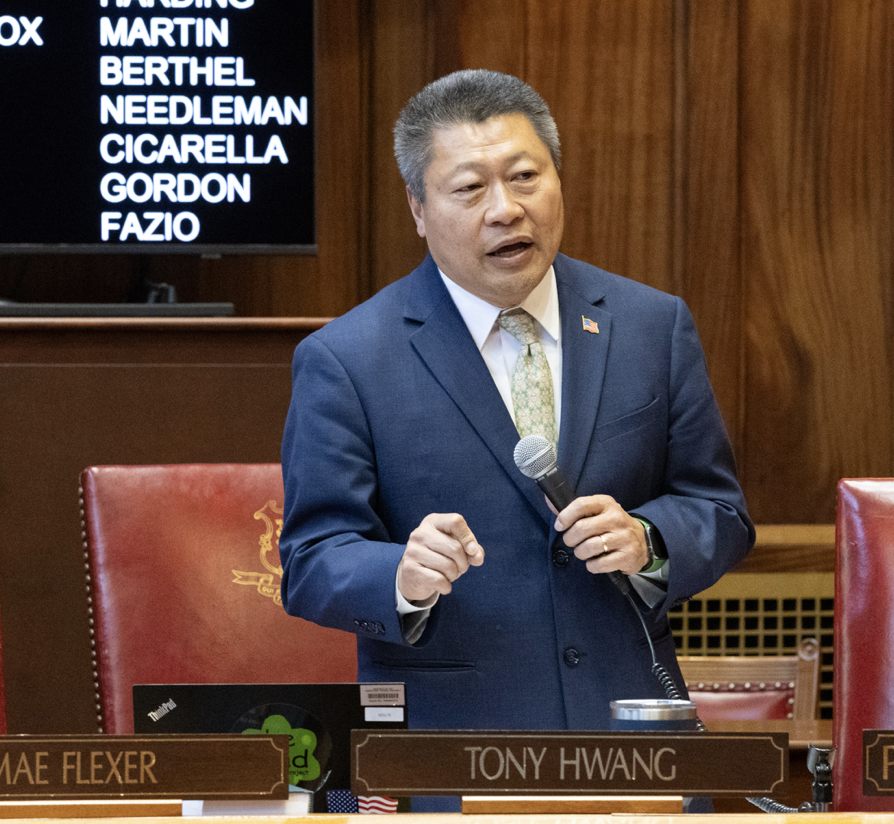
HARTFORD, CT – Yesterday, Senator Tony Hwang (R-Fairfield) cast a “yes” vote in support of Senate Bill 4: An Act Concerning Energy Affordability, Access, and Accountability, a bipartisan compromise aimed at providing modest relief to Connecticut electric ratepayers and bringing much-needed transparency to the utility sector.
“This was not an easy vote,” said Senator Hwang. “For too long, Connecticut residents have been burdened by some of the highest energy costs in the country, with hidden charges and little accountability. This bill takes important first steps to lower costs for families and small businesses, but it falls short of the comprehensive reform we desperately need.”
Key Relief Measures:
- Eliminating certain charges from electric bills, saving ratepayers over $100 million statewide.
- Utilizing state borrowing to fund vital public benefit programs, including home conservation efforts and energy assistance, rather than burying these costs in monthly bills.
- Adjusting subsidies for electric vehicles and solar installations to improve fairness and transparency.
“These changes are a small but important step forward,” Hwang said. “They end hidden taxes on utility bills and move these programs into the General Appropriation Fund, where they can be reviewed and debated openly like every other budget priority. Transparency and accountability.”
Balancing Clean Energy and Accountability
Senator Hwang acknowledged concerns from environmental advocates about renewable energy impacts, but emphasized that this bill is not a retreat from clean energy, it’s about demanding honesty and transparency.
“We are not abandoning clean energy. We’re bringing accountability to how those funds are spent,” Hwang said. “We owe it to ratepayers to make sure every dollar spent is truly delivering value.”
Despite these improvements, Hwang highlighted several concerns that remain unresolved:
- Provisions expanding the authority of the PURA Chair without sufficient checks and balances.
- Language that could retroactively validate contested decisions, impacting ongoing litigation involving PURA, Eversource, and Avangrid.
- A toxic atmosphere of mistrust and lawsuits that continues to plague Connecticut’s energy regulation system.
“Connecticut’s energy system is broken and the cost burden on ratepayers is unaffordable,” Hwang said. “We have a regulatory environment marked by lawsuits, gridlock, and a deep breakdown in trust. While Senate Bill 4 brings some relief, it is only a stopgap, not the long-term solution we need.”
A Call for Structural Reform
Senator Hwang called for bold, bipartisan action to address the underlying dysfunction in Connecticut’s energy governance:
- Formal mediation processes to resolve disputes between regulators and utilities.
- Greater demand for transparency, accountability and responsive consumer services and reliability.
- True stakeholder collaboration to develop sustainable, affordable energy policies that respect the environment and ratepayers alike.
“My vote today was a reluctant yes, because our residents need relief now,” Hwang concluded. “But make no mistake: we must keep fighting for structural reforms that restore trust, protect consumers, be cost efficient and make our energy system fair, transparent, and accountable to the people it serves.”
Senate Bill 4 now heads to the House of Representative and upon House passage, goes to the Governor’s desk for final approval.